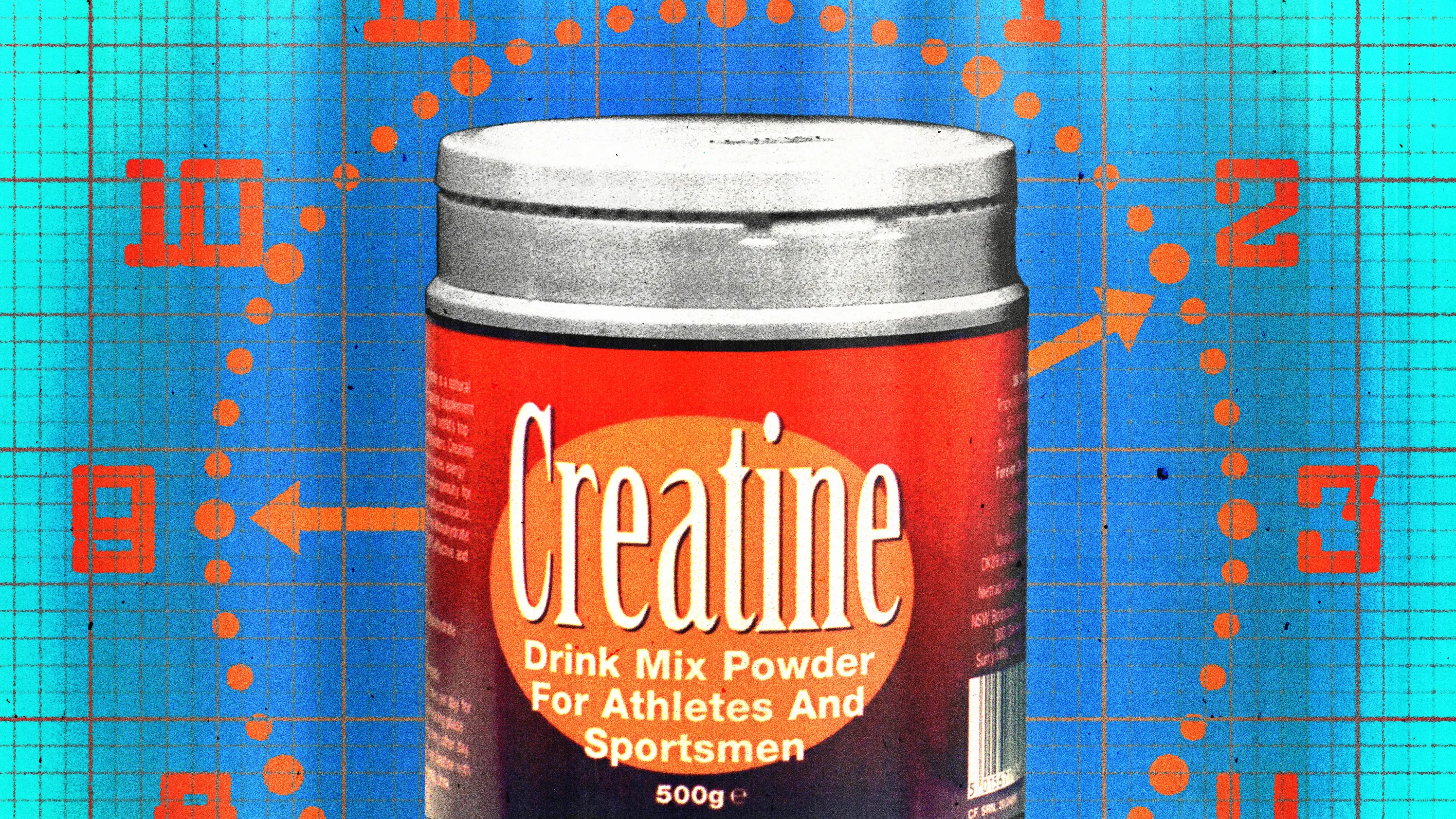Copyright gq

If you’re strength training, there’s a good chance that you've dabbled in the world of creatine. Studies have shown that regularly taking creatine is associated with better brain health, bone strength, and supporting muscle growth. Maybe you’ve heard about those benefits, but what’s less clear is when exactly you should be taking take it. After all, creatine supplements aren’t cheap. If you’re shelling out for it, you want to make sure you’re getting everything you can out of it. What does the science say about when to take it? We talked to sports dietitians to find out the exact best time to take creatine, how much to take, and if it should be paired with anything for optimal absorption. What are the benefits of creatine supplements? “Creatine is a compound your liver and kidneys synthesise from three amino acids: arginine, glycine, and methionine,” says Jordan Mazur, the director of nutrition for the San Francisco 49ers. Mazur explains that about 95% of creatine is stored in muscles as phosphocreatine, a molecule that is important for energy production in muscle cells. “You get a little creatine from meat and fish, but supplementing pushes your muscle stores to full capacity, giving you a larger on-demand energy reserve,” Mazur says. Phosphocreatine provides immediate fuel that is used to synthesise ATP in muscle cells, says Joel Ramdial, the program director of nutrition in the Department of Allied Health, Kinesiology, and Sport Sciences at Southeast Missouri State University. This helps muscles with explosive movements, like box jumps and deadlifts. “We normally have a very limited supply of phosphocreatine in the muscles, but supplementing with creatine can increase this phosphocreatine supply, which can extend the duration of high-intensity strength exercises,” Ramdial says, adding that over time, this can lead to an increase in muscle and bone strength. What all of this means is that if your goal is to become stronger, supplementing with creatine can work in your favor. “Anyone chasing strength, power, or lean mass gains—think lifters, sprinters, and team sport athletes [can benefit from a creatine supplement],” Mazur says, adding that it can also be helpful for vegans and vegetarians whose diets tend to be low in natural creatine. Jonathan Poyourow, a former dietitian in the U.S. Army and who is now a sports dietitian at Johnson & Wales University, says that older adults can also benefit from supplementing with creatine as a way to preserve muscle. There is some evidence that taking creatine can help with workout recovery too, according to a 2021 scientific study published in Nutrients. Poyourow explains that it does this by reducing markers of muscle inflammation after exercise, promoting cell hydration, and supporting glycogen resynthesis (when consumed with carbohydrates). Besides being good for your muscles, creatine may also support the brain. A 2024 scientific paper published in Frontiers in Nutrition found a connection between creatine supplementation and significant improvement in memory and cognitive processing time across several different controlled clinical trials. The best time to take creatine Since creatine’s main draw is that it supports strength and muscle growth, it makes sense to think about its timing in relation to your workout routine. But actually, all of the sports dietitians we talked to say that when to take creatine doesn’t matter all that much, though similar to protein, research suggests it’s best to take it either before or after a workout. “Research examining timing has shown mixed findings as to whether immediately before or after exercise is best, so choose what works best for your lifestyle,” says Kelly Pritchett, a professor in nutrition and exercise science at Central Washington University. To this point, a 2022 study published in the journal Frontiers found that consuming creatine before working out had similar results to having it post-workout; one was not more effective than the other. A 2021 paper published in Nutrients that compared numerous existing studies on creatine timing came to the same conclusion. Though you’ll get the benefits from creatine no matter when you take it, one benefit to having it pre-workout is that it can lead to a more effective workout—at least in terms of those explosive power moves. Pritchett says that peak creatine absorption happens one to two hours after consumption and it stays in the bloodstream for about four hours. So if you want to use it to power up your workouts, keep that in mind. Here’s what all of the dietitians we talked to say does matter: consistency. Pritchett says that if you’re supplementing with creatine with the intention of building strength, it’s important to take it every day, including on rest days. When you do take your creatine, Mazur says it can be helpful to pair it with between 30 and 50 grams of carbohydrates, which will create an insulin spike that boosts muscle uptake by about 10 to 20%. “Dissolving it in warm liquid and adding a pinch of sodium also improves solubility, but carbs—or carbs plus protein—are the real difference makers,” he says. In terms of how much creatine to take, Mazur recommends a standard 5-gram dose, even on rest days. Since when you take creatine doesn’t matter too much, he adds that it can be taken whenever it’s most convenient on rest days. You may have heard about a ramp-up period with creatine. Dr. Poyourow says that some people choose to begin with a loading phase of 20 grams daily for five to seven days, divided into four doses, to saturate muscle stores more quickly. But he adds that a recent paper published in Nutrients shows that a lower daily dose is equally effective over time, so a ramp-up period isn’t really necessary. All of the experts issue a reminder that, as with other supplements, creatine supplements are not FDA-regulated. That means you need to do your research and find one that has been third-party tested for purity, potency, and safety. If you are an athlete or have any underlying health conditions, it’s a good idea to talk to a sports dietitian or doctor before integrating it into your routine. If you’ve been confused about when to take creatine, the good news is that you can’t really mess it up. Pair it with a carb, take it every day, and you’ll be good to go.



